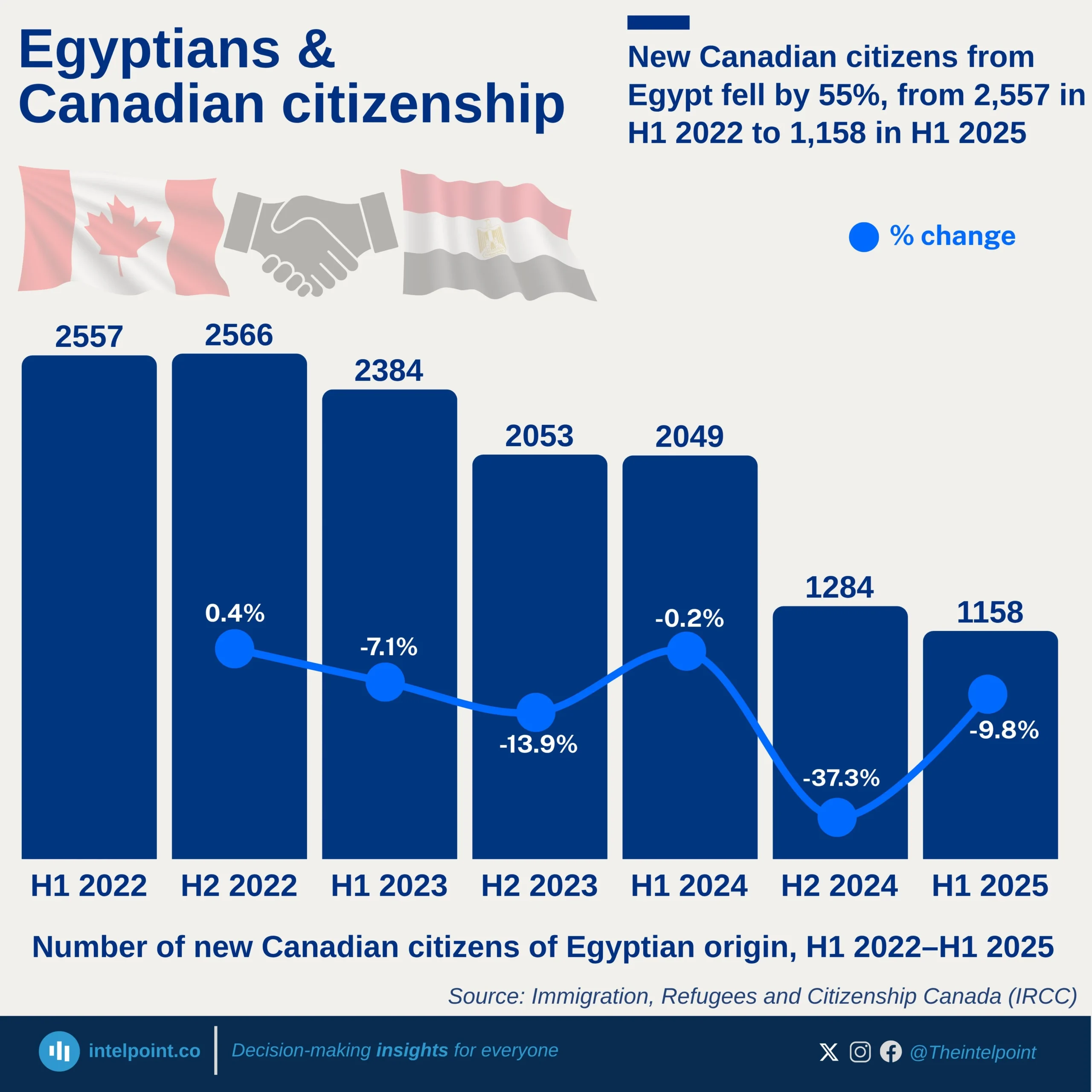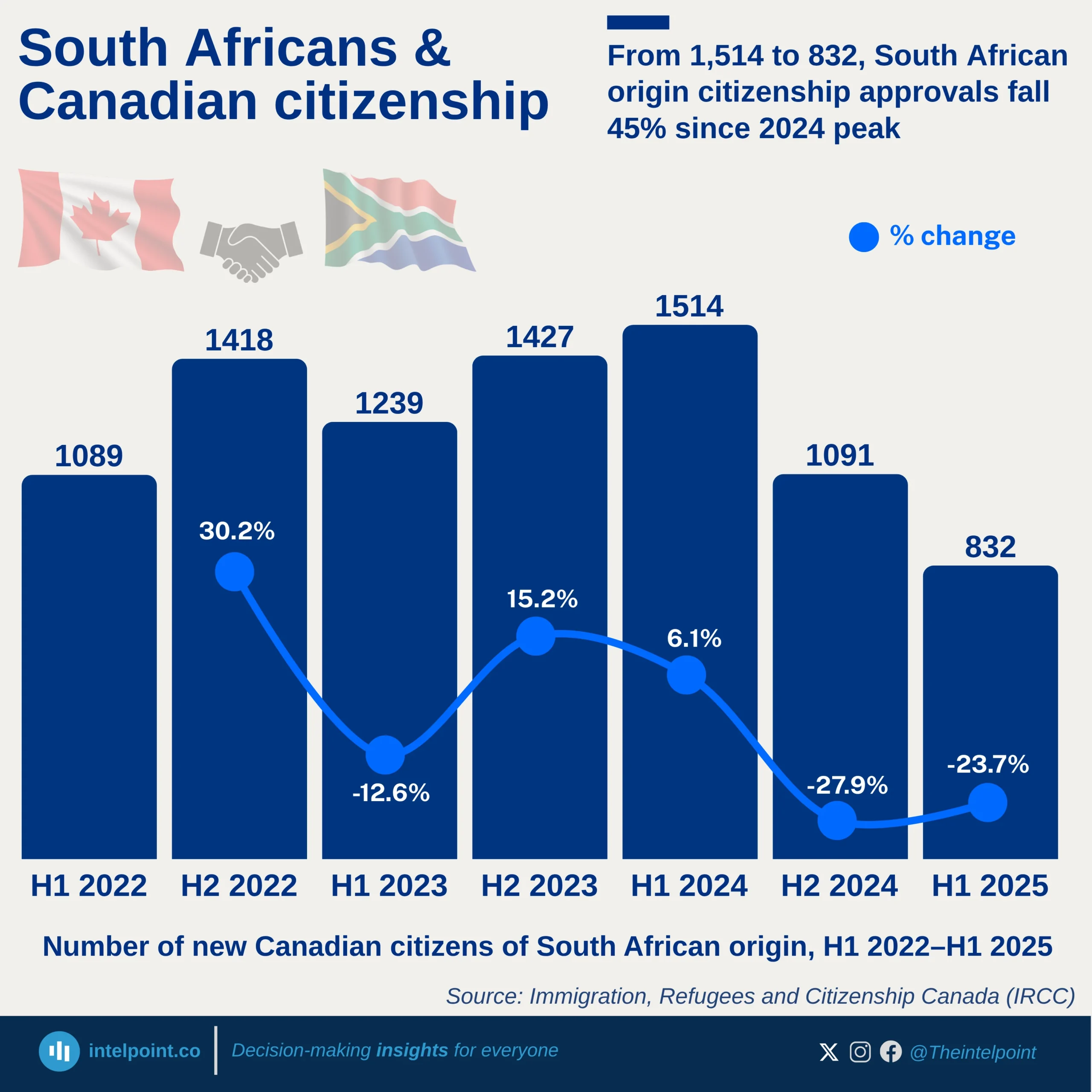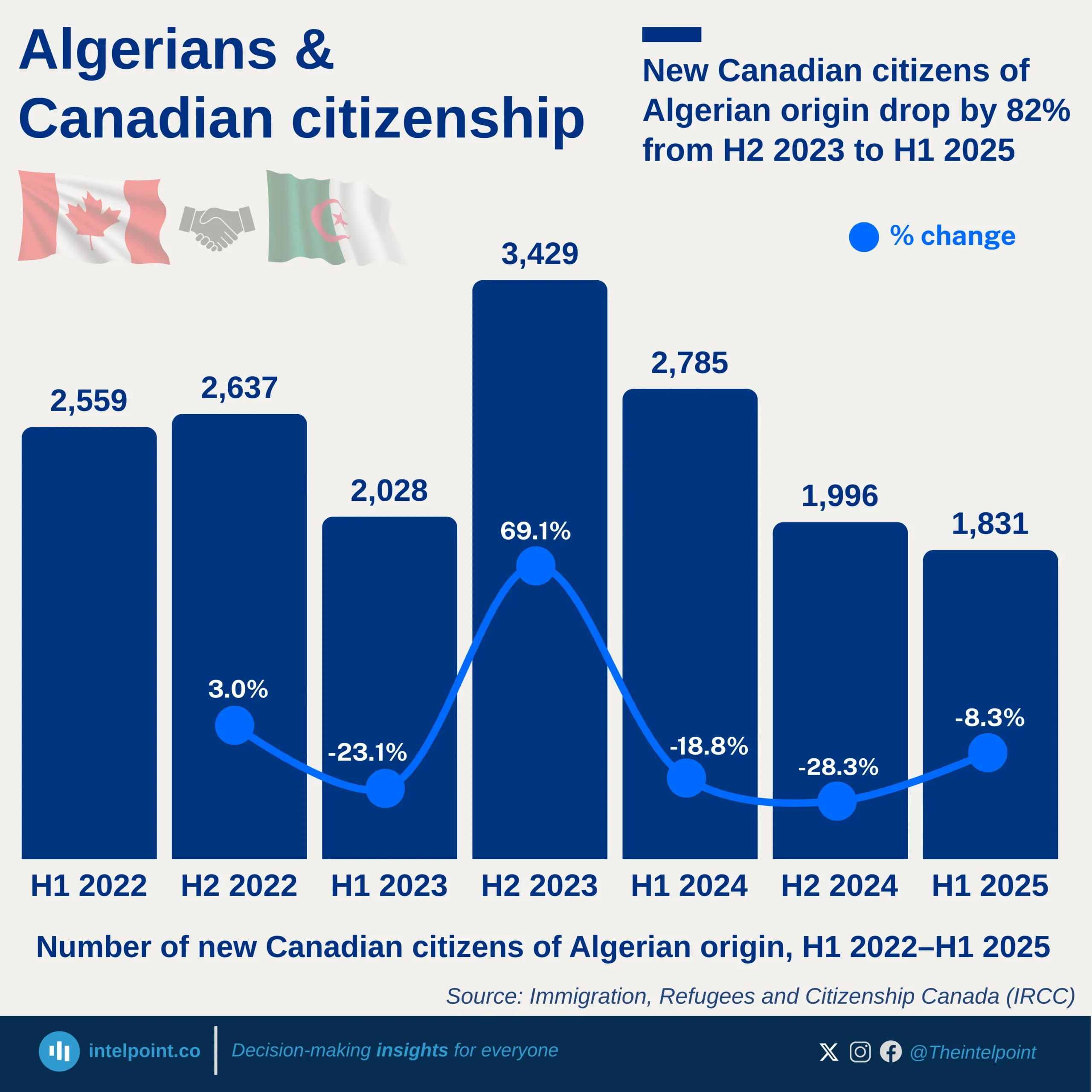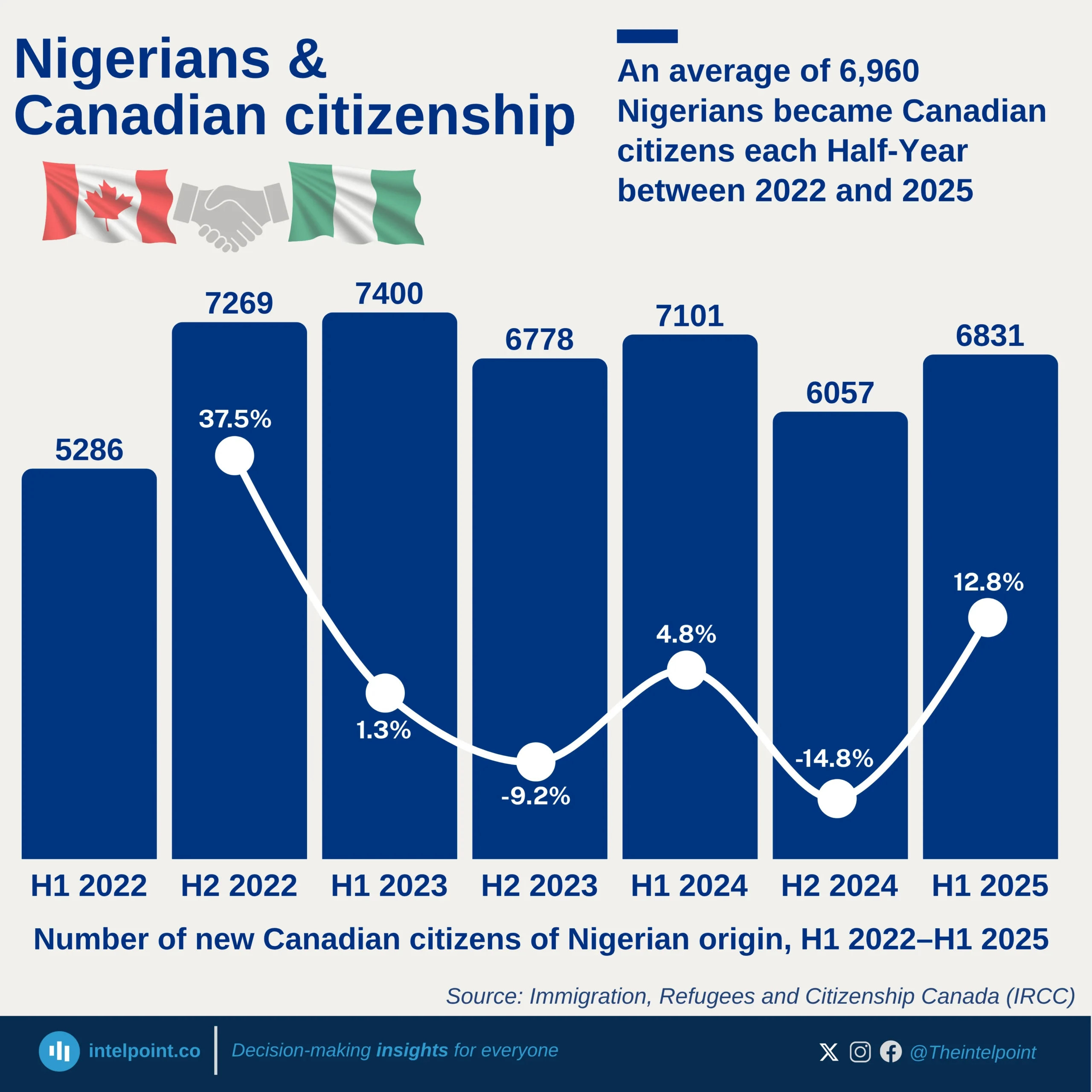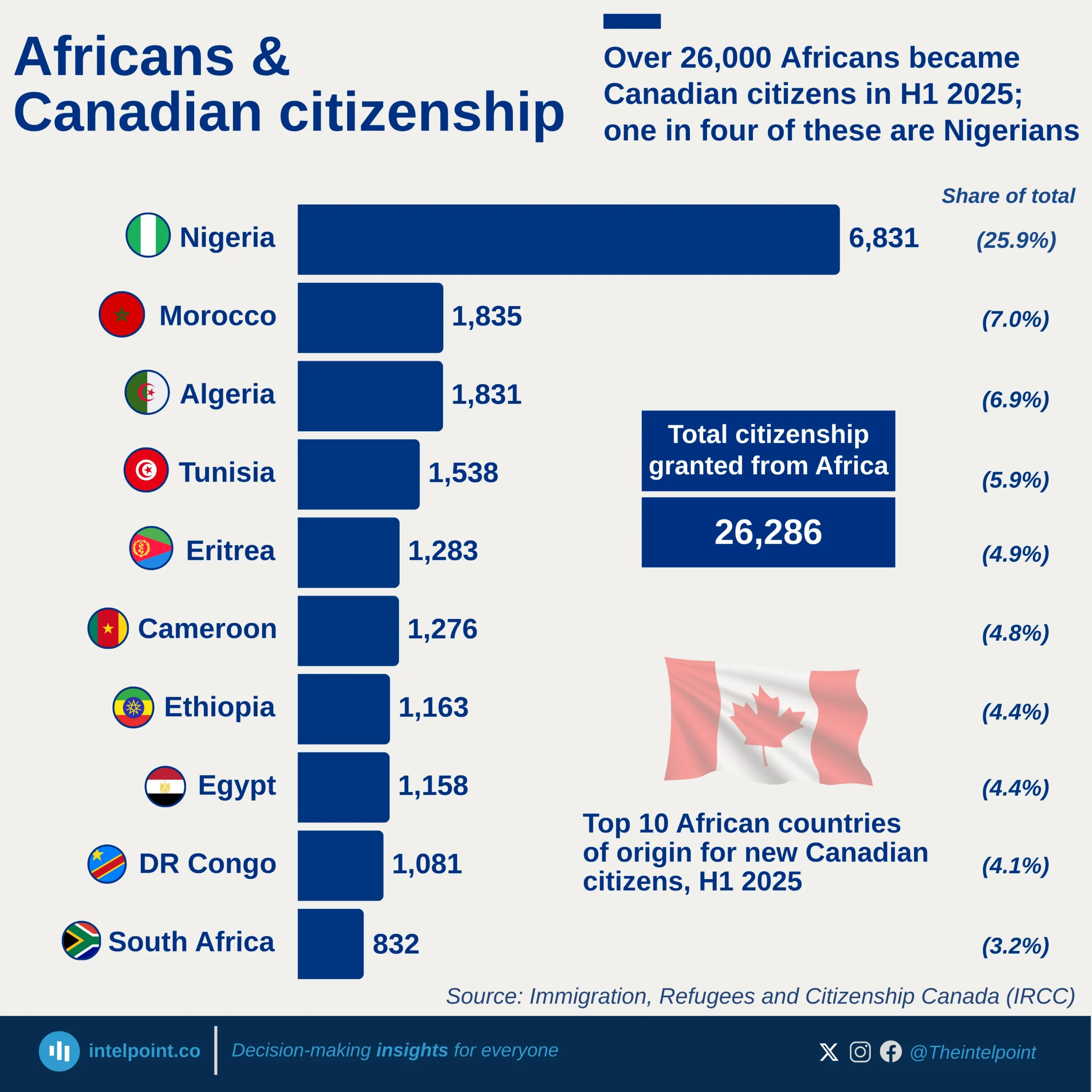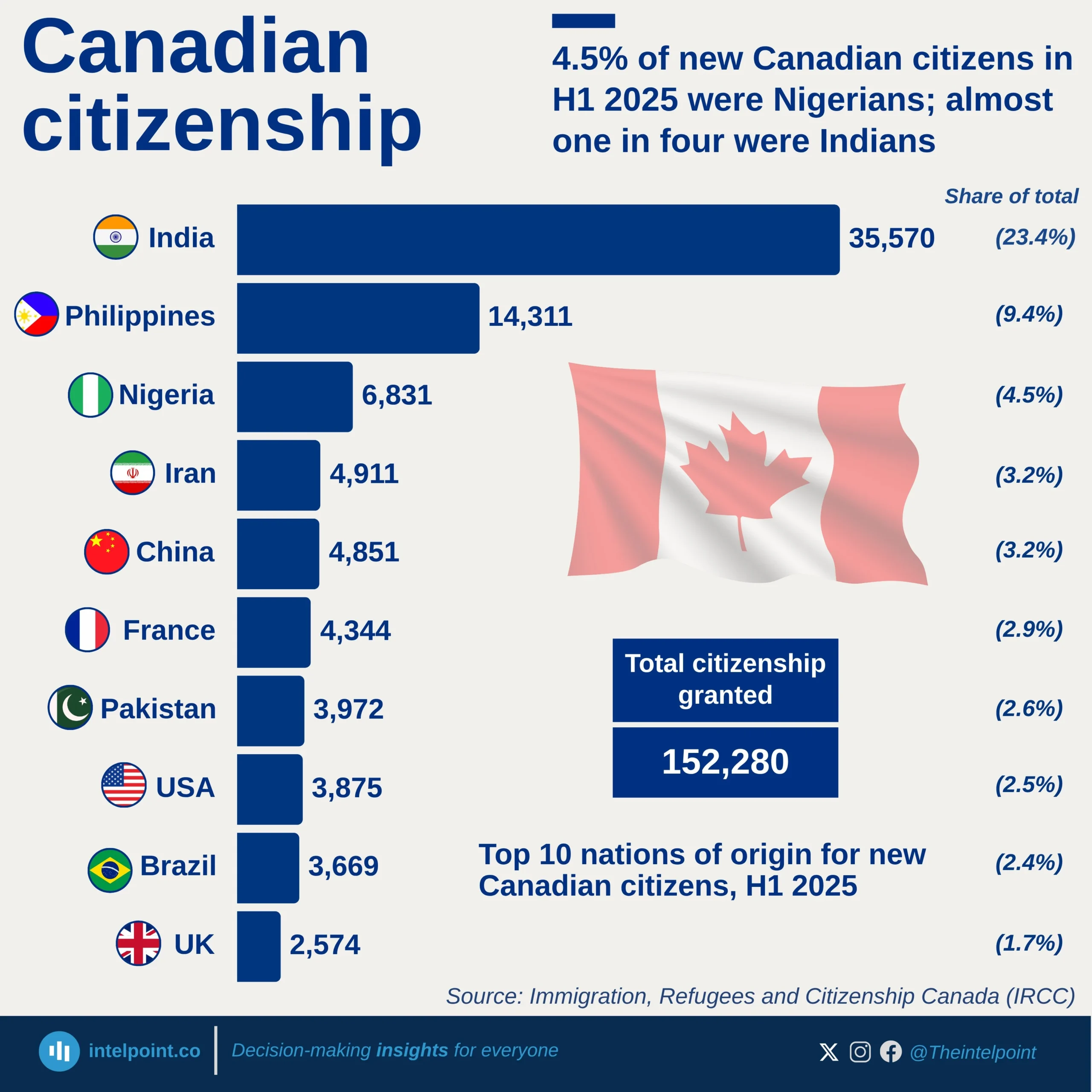Between H1 2022 and H1 2025, the number of Ghanaian-born individuals becoming Canadian citizens showed a gradual rise followed by a notable decline. From 577 in H1 2022 to a peak of 717 in H1 2024, naturalisations grew steadily, supported by Canada’s expanding permanent residency conversions and family reunification pathways. However, H1 2025 saw a 25.5% decline, likely reflecting slower processing rates and shifting immigration priorities as Canada adjusted its intake targets. Despite this downturn, Ghana’s overall trend remains positive over the three-year span, highlighting continued migration ties and interest in Canadian citizenship among Ghanaians.
